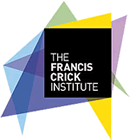About the Project
This 4-year PhD studentship is offered in Dr Kathy Niakan’s Group based at the Francis Crick Institute (the Crick).
The goal of the Human Embryo and Stem Cell Laboratory is to understand the molecular mechanisms that control early human development. The mechanisms that regulate early cell fate decisions in human development remain poorly understood, despite their fundamental biological importance and wide-reaching clinical implications for understanding infertility, miscarriages, developmental disorders and therapeutic applications of stem cells.
The PhD project will investigate when and how human embryonic epiblast cells are established and maintained and understand the molecular mechanisms that distinguish these pluripotent cells from extra-embryonic (placenta and yolk-sac progenitor) cells during embryogenesis. We have recently identified several transcription factors and components of key signaling pathways that are highly expressed in epiblast cells of the developing human embryo, which we hypothesize are required for the development of these pluripotent cells. We seek to understand the function requirement of these factors using a range of methods including cutting-edge single cell, imaging and genome editing techniques.
The knowledge gained from this project will provide fundamental insights into human biology and facilitate the development of conditions for the further refinement of implantation models and the establishment of novel human stem cells and stem cell-based models of development. Altogether, we seek to make significant advances in our understanding of the molecular programs that shape early human embryogenesis, which has the potential to provide fundamental insights and to drive clinical translation.
Research techniques used in the laboratory include: molecular biology, advanced microscopy and image quantification, live embryo imaging, human and mouse preimplantation embryo culture and micromanipulation, proteomics, genome modification (i.e. CRISPR-Cas9), TRIM-Away protein depletion, genome-wide techniques (i.e. single-cell multi-omics combining RNA-seq, DNA-seq and methylomics analysis), generation of human stem cell-based models of development and human trophoblast, embryonic and induced pluripotent stem cell derivation.
Candidate background
This project would suit a candidate who is curious and passionate to understand the molecular mechanisms that regulate the first cell fate decisions in human embryos. We also seek candidates who have a desire to work in a congenial and collaborative research environment.
Talented and motivated students passionate about doing research are invited to apply for this PhD position. The successful applicant will join the Crick PhD Programme in September 2021 and will register for their PhD at one of the Crick partner universities (Imperial College London, King’s College London or UCL).
Applicants should hold or expect to gain a first/upper second-class honours degree or equivalent in a relevant subject and have appropriate research experience as part of, or outside of, a university degree course and/or a Masters degree in a relevant subject.
APPLICATIONS MUST BE MADE ONLINE VIA OUR WEBSITE https://www.crick.ac.uk/careers-and-study/students/phd-students BY 12:00 (NOON) 12 November 2020. APPLICATIONS WILL NOT BE ACCEPTED IN ANY OTHER FORMAT.
References
1. Gerri, C., McCarthy, A., Alanis-Lobato, G., Demtschenko, A., Bruneau, A., Loubersac, S., . . . Niakan, K.K. (2020)
Initiation of a conserved trophectoderm program in human, cow and mouse embryos.
Nature Epub ahead of print. PubMed abstract
2. Wamaitha, S.E., Grybel, K.J., Alanis-Lobato, G., Gerri, C., Ogushi, S., McCarthy, A., . . . Niakan, K.K. (2020)
IGF1-mediated human embryonic stem cell self-renewal recapitulates the embryonic niche.
Nature Communications 11: 764. PubMed abstract
3. Fogarty, N.M.E., McCarthy, A., Snijders, K.E., Powell, B.E., Kubikova, N., Blakeley, P., . . . Niakan, K.K. (2017)
Genome editing reveals a role for OCT4 in human embryogenesis.
Nature 550: 67-73. PubMed abstract
4. Wamaitha, S.E., Del Valle, I., Cho, L.T.Y., Wei, Y., Fogarty, N.M.E., Blakeley, P., . . . Niakan, K.K. (2015)
Gata6 potently initiates reprograming of pluripotent and differentiated cells to extraembryonic endoderm stem cells.
Genes & Development 29: 1239-1255. PubMed abstract
5. Blakeley, P., Fogarty, N.M.E., del Valle, I., Wamaitha, S.E., Hu, T.X., Elder, K., . . . Niakan, K.K. (2015)
Defining the three cell lineages of the human blastocyst by single-cell RNA-seq.
Development 142: 3151-3165. PubMed abstract

 Continue with Facebook
Continue with Facebook

